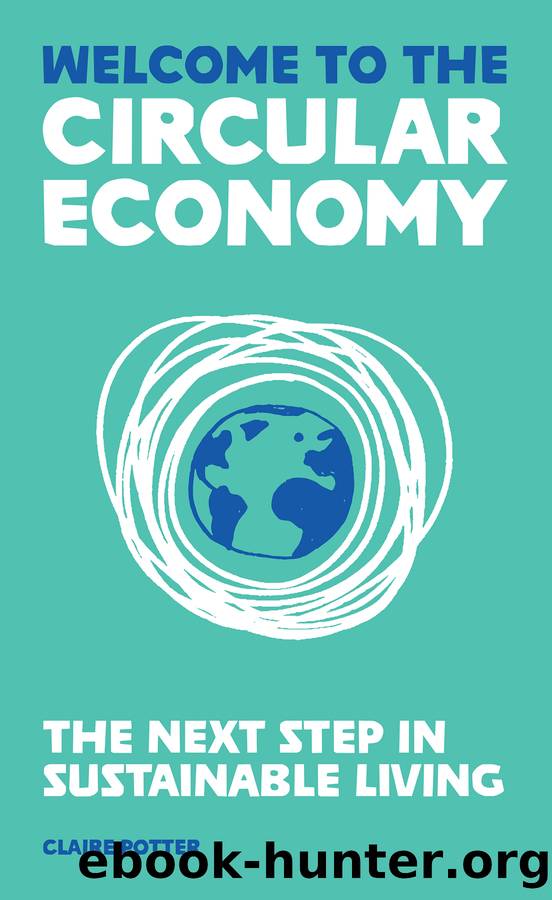Welcome to the Circular Economy by Potter Claire;

Author:Potter, Claire;
Language: eng
Format: epub
Publisher: Laurence King Publishing
Probably the biggest bugbear I have with recycling is that it has been framed as our problem â each of us as individuals. Large corporations have pushed the responsibility and guilt on to us, rather than making changes themselves. We can only do the best with the hand we are dealt and, particularly with plastic, quite frankly weâve been dealt a bit of a dud. We trusted that our waste was being collected, sorted and reprocessed. Only in the last few years have we found out that this is not the case. As consumers we have a part to play, but the guilt should not lie solely with us.
So, am I telling you not to recycle? Certainly not. Iâm just highlighting the reality of a system that will not save us. Recycling is a destructive process, whereas reusing or repairing are neutral: by keeping an object in the same form for as long as possible, the energy, water and emissions it took to create that object are locked up in solid form; when we recycle it, we are using more energy, water and emissions to destroy it and make it into something else. Yes, recycling is better than landfill or incineration, but it should always be the last resort. We need to be mindful of what we acquire and lobby manufacturers to change their packaging if we truly canât do anything with it at the end of its life. We shouldnât be lumbered with a problem they have created.
There are, nevertheless, times when destroying something can actually be a valuable thing to do, both economically and in terms of resources. A report by the United Nations in 2019 estimated that, in 2018, our electronic and electrical waste (anything with a plug, electric cord or battery) reached an incredible 50 million tonnes (about 55 million tons) â weighing more than all the commercial airliners ever made. That figure is expected to double by the middle of the century. As far as reprocessing goes, only 20 percent of this waste is documented as being recycled, and often by the worldâs poorest people (as with plastic in Malaysia).138 Recycling is often a system made viable only by poverty.
Download
This site does not store any files on its server. We only index and link to content provided by other sites. Please contact the content providers to delete copyright contents if any and email us, we'll remove relevant links or contents immediately.
International Integration of the Brazilian Economy by Elias C. Grivoyannis(109581)
The Radium Girls by Kate Moore(12014)
Turbulence by E. J. Noyes(8040)
Nudge - Improving Decisions about Health, Wealth, and Happiness by Thaler Sunstein(7689)
The Black Swan by Nassim Nicholas Taleb(7105)
Rich Dad Poor Dad by Robert T. Kiyosaki(6603)
Pioneering Portfolio Management by David F. Swensen(6288)
Man-made Catastrophes and Risk Information Concealment by Dmitry Chernov & Didier Sornette(6002)
Zero to One by Peter Thiel(5786)
Secrecy World by Jake Bernstein(4740)
Millionaire: The Philanderer, Gambler, and Duelist Who Invented Modern Finance by Janet Gleeson(4464)
The Age of Surveillance Capitalism by Shoshana Zuboff(4274)
Skin in the Game by Nassim Nicholas Taleb(4235)
The Money Culture by Michael Lewis(4196)
Bullshit Jobs by David Graeber(4179)
Skin in the Game: Hidden Asymmetries in Daily Life by Nassim Nicholas Taleb(3987)
The Dhandho Investor by Mohnish Pabrai(3758)
The Wisdom of Finance by Mihir Desai(3727)
Blockchain Basics by Daniel Drescher(3574)
